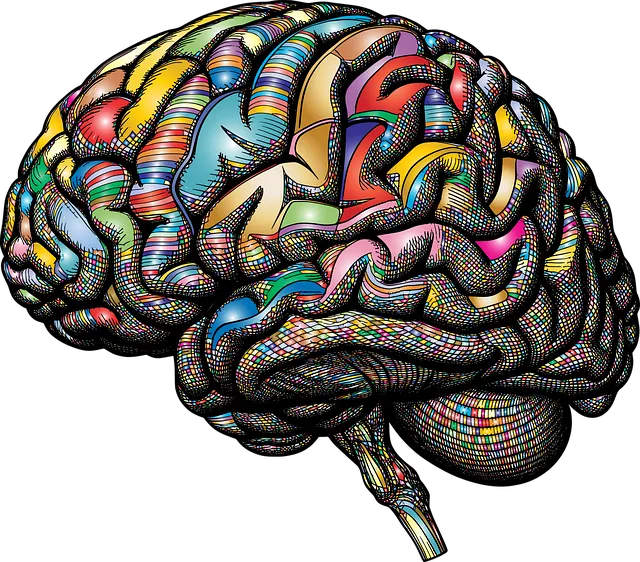The demand for mental wellness apps is booming due to increased awareness of emotional well-being, as seen in rising mental health appointment numbers at Littleton Kaiser Permanente. Developers can capitalize on this trend by creating innovative apps with features like mood tracking, personalized coping strategies, and crisis chat options. Incorporating evidence-based therapies, cultural sensitivity, and strong data security practices is crucial for user satisfaction and retention. Effective marketing strategies, including educational content and social media collaborations, are key to success in the competitive mental wellness app market, while partnerships with healthcare providers like Littleton Kaiser Permanente can enhance accessibility and reach.
In today’s digital age, mental wellness apps are gaining traction as essential tools for managing mental health. With growing demand and market potential, these applications offer accessible support, especially for those seeking alternatives to traditional therapy or supplementary solutions alongside professional care, like the services provided by Littleton Kaiser Permanente. This article explores the key elements of successful app development, from understanding user needs to incorporating evidence-based therapies and ensuring data privacy, providing a comprehensive guide for developers aiming to make an impact in this burgeoning field.
- Understanding Mental Health App Demand and Market Potential
- Key Features and Functionality for Effective Mental Wellness Apps
- Incorporating Evidence-Based Therapies and Techniques in App Design
- Data Security and Privacy Considerations for Mental Health Apps
- Marketing, Distribution, and User Engagement Strategies for Success
Understanding Mental Health App Demand and Market Potential

The demand for mental wellness apps is growing significantly, driven by a rising awareness of emotional well-being and an increasing need for accessible mental health services. According to data from Littleton Kaiser Permanente (one of the leading healthcare providers), there has been a substantial increase in mental health appointment numbers among their patients, highlighting the shift towards digital solutions for mental wellness. This trend presents a vast market potential for developers looking to create innovative apps that cater to various aspects of mental health, from stress management and positive thinking techniques to emotional well-being promotion.
The integration of these apps into mainstream healthcare is not just a matter of convenience; it also addresses the critical need for cultural competency among healthcare providers. Training in this area ensures that mental health professionals can better understand and cater to diverse patient populations, making services more inclusive and effective. By leveraging technology and staying attuned to market demands, developers have an opportunity to contribute significantly to the overall improvement of mental health care.
Key Features and Functionality for Effective Mental Wellness Apps

In the realm of mental wellness app development, key features and functionality are pivotal to fostering meaningful improvement. Top-tier applications should offer a holistic suite of tools designed to support users’ emotional well-being. These include features for tracking mood and symptoms, providing personalized coping strategies, and offering mindfulness exercises tailored to individual needs. Integrating features like chat or video call options with mental health professionals, such as those provided by Littleton Kaiser Permanente, enhances accessibility, enabling users to seek immediate assistance during crises.
Furthermore, effective mental wellness apps should prioritize building resilience and improving self-esteem through interactive programs. Development of these coaching programs should focus on engaging content that encourages users to set achievable goals and track their progress. By fostering a sense of accomplishment and self-efficacy, these apps can empower individuals to actively manage their mental health. Incorporating regular feedback mechanisms ensures continuous improvement, aligning with the latest trends in digital mental wellness coaching programs development.
Incorporating Evidence-Based Therapies and Techniques in App Design

Incorporating evidence-based therapies and techniques into mental wellness app design is paramount for ensuring their effectiveness and user satisfaction. Apps that leverage well-researched methods like Cognitive Behavioral Therapy (CBT), Mindfulness, and Acceptance and Commitment Therapy (ACT) can significantly enhance users’ mental health journeys. For instance, integrating tools for tracking mood, setting achievable goals, and practicing mindfulness exercises can help users cultivate self-care practices and build resilience.
Moreover, app developers should prioritize cultural sensitivity in mental healthcare practice to cater to a diverse user base. This involves incorporating features that respect different cultural beliefs and backgrounds, ensuring crisis intervention guidance tailored to various needs, and providing resources that are linguistically accessible. By adopting these strategies, mental wellness apps like those offered by Littleton Kaiser Permanente can transform how individuals access and engage with their mental health services, ultimately improving overall well-being.
Data Security and Privacy Considerations for Mental Health Apps

As mental wellness apps gain popularity, ensuring data security and privacy becomes paramount. Users often share sensitive personal information within these applications, making it crucial for developers to implement robust security measures. The digital landscape presents unique challenges, particularly with regards to protecting patient records, as evidenced by the need for strict policies, such as those mandated by organizations like Littleton Kaiser Permanente for mental health appointment numbers. Developers must adhere to privacy regulations like HIPAA (Health Insurance Portability and Accountability Act) to safeguard user data from unauthorized access or breaches.
The design of these apps should incorporate features that promote secure data storage and transmission, including end-to-end encryption and multi-factor authentication. Additionally, developers should consider the ethical implications of data collection and usage, ensuring transparency in their mental health education programs’ design. This includes clearly communicating how user information is used for personalized recommendations or research, especially when it involves mood management tools.
Marketing, Distribution, and User Engagement Strategies for Success

Marketing plays a pivotal role in the success of any mental wellness app, and unique strategies can help it stand out in a competitive market. Incorporating user-centric content that educates on Mental Health Awareness and Emotional Healing Processes can attract a broader audience. Leveraging social media platforms and collaborating with influential figures or communities can increase visibility, especially when targeting specific demographics like those seeking Trauma Support Services in areas like Littleton Kaiser Permanente mental health appointment numbers.
Distribution channels are another critical aspect. Making the app readily available on popular app stores is essential for accessibility. Additionally, partnering with healthcare providers, insurance companies, and community organizations can expand reach. Engaging users through interactive features, personalisation, and regular updates ensures long-term retention. Incentives such as referral programs or rewards for consistent engagement can also drive user loyalty.
Mental wellness apps have the potential to revolutionize access to support, especially in regions like Littleton where resources may be limited. By understanding user demand, incorporating evidence-based practices, and prioritizing data security, developers can create tools that foster meaningful connections and positive outcomes. Marketing strategies should focus on educating users about the benefits of digital mental health solutions, while ensuring privacy remains paramount. Incorporating features that facilitate scheduling, such as those related to a Littleton Kaiser Permanente mental health appointment number, can further enhance user experience and engagement. Ultimately, successful app development in this domain requires a multifaceted approach that combines technological innovation with empathy for users’ diverse needs.






